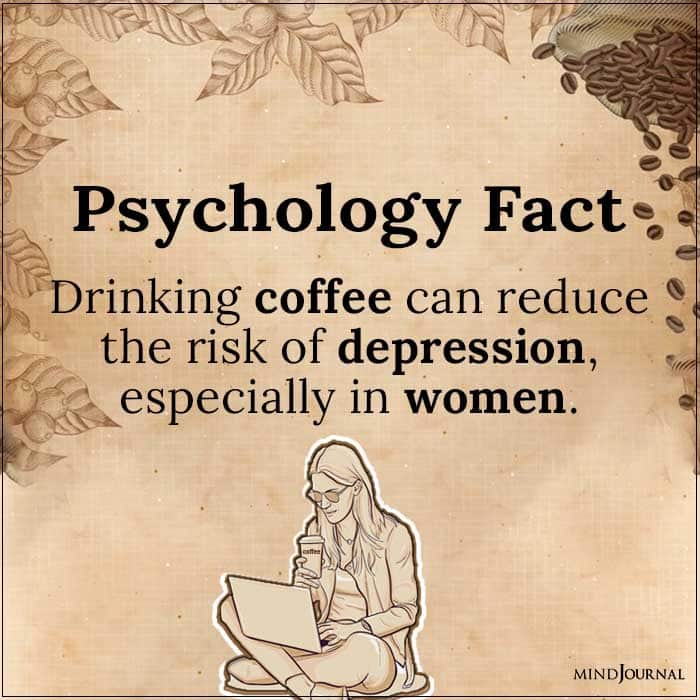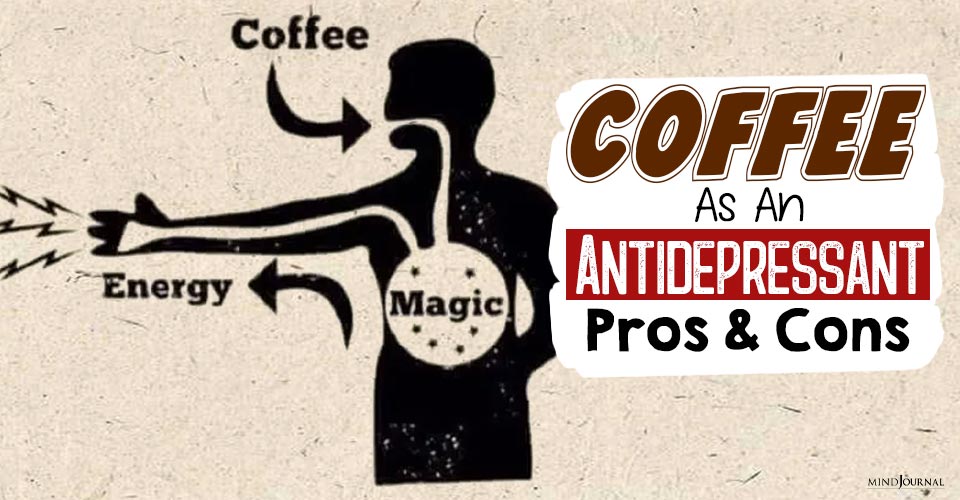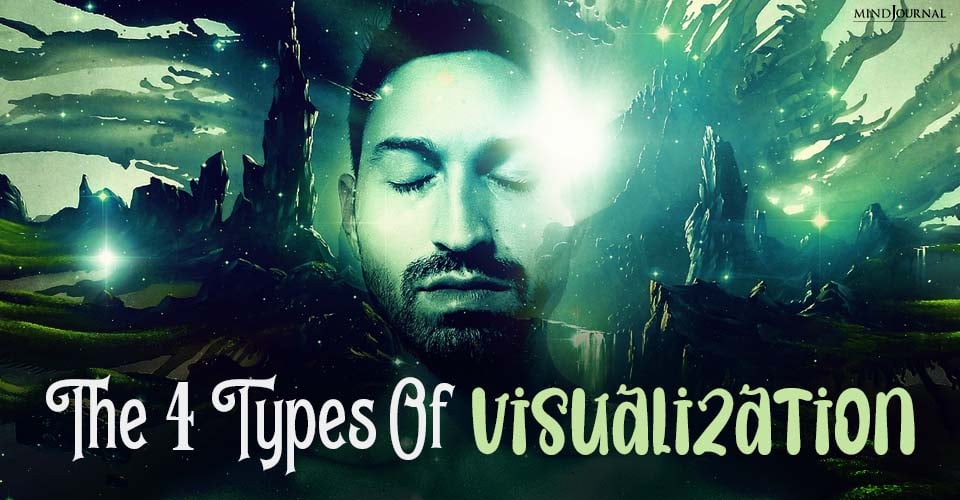Do you feel energized and alert after starting the day with a cup of coffee? Well, according to a research about caffeine and depression, people tend to experience an improvement in their mood when they drink coffee.
So do we treat coffee as an antidepressant? Let’s learn more about the pros and cons of your caffeine intake daily.
In America, we consume over 400 million cups of coffee every day. Ever wonder why so many of us make such a lustful beeline for our caffeine? Could it be the oodles of antioxidants it contains? Or that science has revealed its health benefits, including lowered risk of diabetes, Parkinson’s disease, gallstones, and colon cancer? I don’t think that even these unquestionable virtues are what make coffee the highlight of your day. Then what does? The mood and energy-enhancing effects of caffeine.
Coffee As An Antidepressant: What Are The Pros and Cons?
Caffeine stimulates the central nervous system and acts as an antidepressant by elevating serotonin and dopamine–it’s even been shown in the Archives of Internal Medicine to lower suicide rates. Some experience the mood boost more than others. Unknowingly, many people self-medicate depression with caffeine. How to know if you’re doing this versus just getting a beneficial pick-me-up?

Related: Diet & Depression: 6 Ways Food Impacts Your Mental Health
Some tip-offs: You consume more than four caffeinated beverages daily, including teas and diet sodas. Or you keep increasing your caffeine intake to feel less depressed, but it’s losing its effectiveness. I’m all for making the most of coffee’s therapeutic perks to allay low-level depression, but sometimes you may need other approaches when this emotion still persists.
To find out if you’re self-medicating depression, you can stop your caffeine intake. After a month (most withdrawal symptoms, which include headache and fatigue, will be over by then) notice if you’re notably more depressed without caffeine, not always an easy experiment. Should you discover that you are self-medicating, also consider the numerous therapies discussed in this chapter to augment coffee, or to replace it.

Related: 20 Things That Happen To Your Body When You Have Coffee Everyday
However, mild depressions can respond well to simply drinking up to three cups daily. (Try spacing them out; caffeine remains in the system four to six hours). More than this increases side effects and raises the chances of tolerance and addiction: You consume greater quantities but don’t get the lift.
Always consider caffeine’s pluses and minuses. Reduce your intake if you have insomnia, heartburn, palpitations, headaches, or nervousness. Moreover, if you’re being treated for heart disease, hypertension, gastrointestinal problems, or other chronic illnesses, consult your physician before you ingest caffeine in any form.

Adapted from Dr. Judith Orloff’s NY Times bestseller “Emotional Freedom: Liberate Yourself From Negative Emotions and Transform Your Life” (Three Rivers Press, 2011)
Related: Top 10 Foods To Boost Your Brain Power and Memory
If you or someone you know is struggling with mental health conditions and using coffee as an antidepressant, know that there aren’t many negative long-term effects of coffee. However, drinking more that the prescribed intake can lead to insomnia or cause high blood pressure. So stay healthy and safe with proper measures!
Written By: Judith Orloff. M. D. Originally Appeared On: Dr. Judith Orloff Republished with permission
Does coffee work as an antidepressant?
Caffeine stimulates the central nervous system and acts as an antidepressant by elevating serotonin and dopamine–it’s even been shown in the Archives of Internal Medicine to lower suicide rates.
Is coffee good for anxiety and depression?
People tend to experience an improvement in their mood when they drink coffee. Even mild depressions can respond well to simply drinking up to three cups daily.
What are the health benefits of caffeine?
A study suggests, caffeine can improve memory or the mental functioning and decrease fatigue.










Leave a Reply